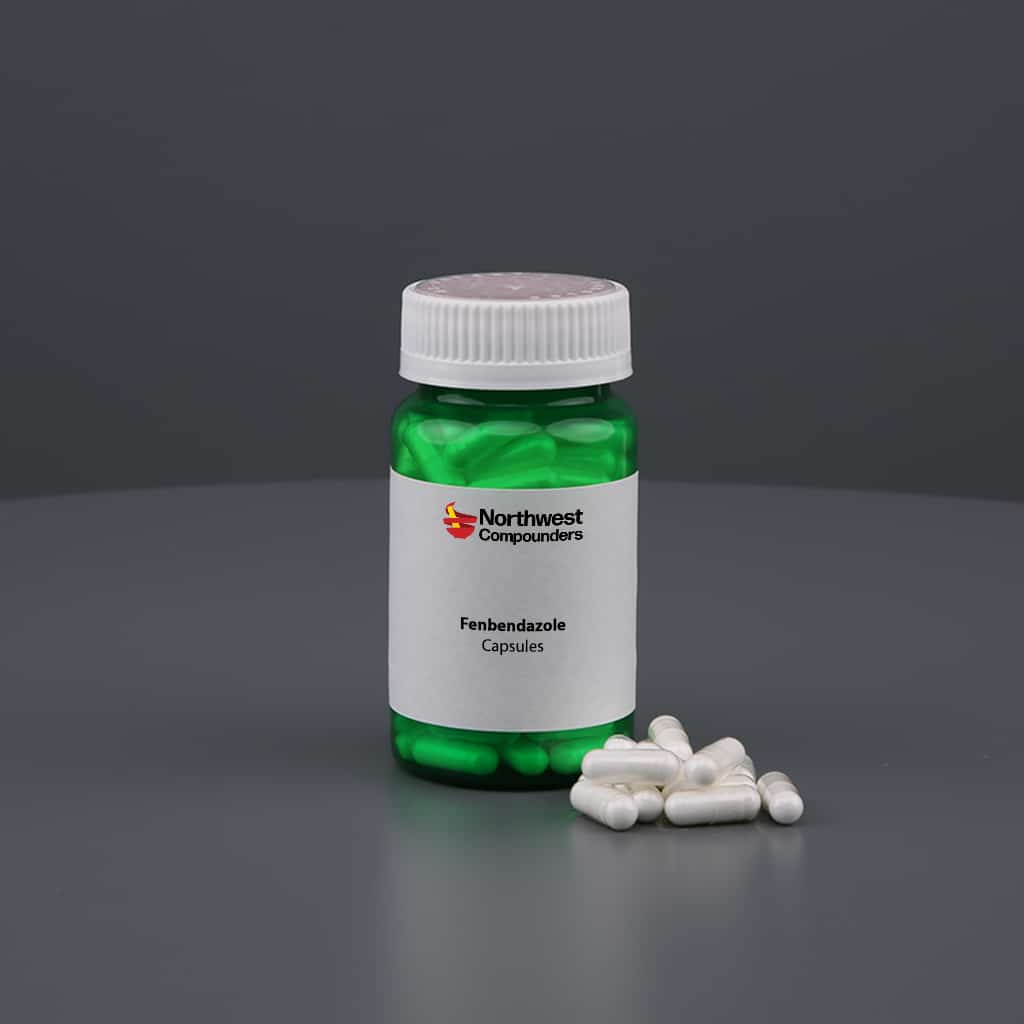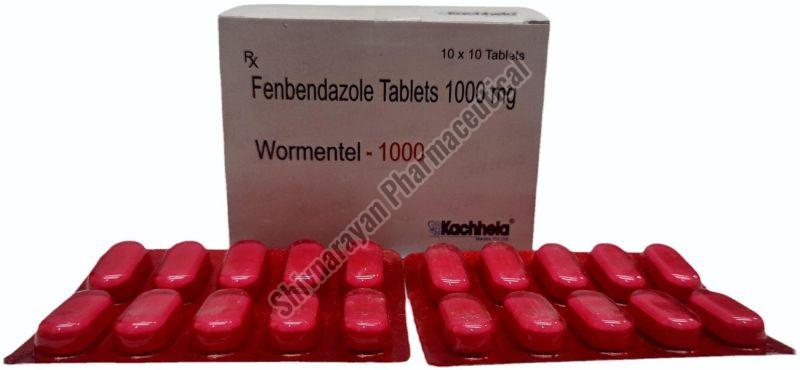Comprehending the Conveniences and Uses of Fenbendazole in Vet Medication
Fenbendazole has actually developed itself as a key anthelmintic in veterinary medication. Its capacity to target different parasitic infections makes it a valuable device for vets. The drug's system interrupts necessary cellular procedures in bloodsuckers, causing reliable treatment outcomes. Its safety and security profile varies between species, necessitating mindful factor to consider in its usage (222 mg). Comprehending these characteristics can shed light on fenbendazole's broader ramifications in vet care and continuous research right into its potential beyond typical applications
System of Action of Fenbendazole

Common Parasitic Infections Treated With Fenbendazole
A variety of parasitic infections are effectively treated with fenbendazole, making it a versatile option in vet medicine. This anthelmintic agent is especially effective versus nematodes, including roundworms and hookworms, which typically impact canines and pet cats. It is also used for the treatment of cestodes, such as tapeworms, giving a broad range of activity versus both kinds of intestinal tract bloodsuckers. Additionally, fenbendazole is valuable in managing infections triggered by protozoa, especially Giardia, which can bring about intestinal distress in pets. Its efficiency encompasses dealing with specific lungworms in pooches and felines, resolving respiratory system health worries linked to these bloodsuckers. In general, fenbendazole's capability to target numerous parasitic varieties makes it a beneficial device in veterinary technique, guaranteeing the health and wellness and wellness of family pets influenced by these usual infections.
Safety and Efficiency in Different Animal Variety
The safety and security and efficiency of fenbendazole differ amongst different animal varieties, highlighting the relevance of species-specific factors to consider in veterinary medicine. In pooches, fenbendazole is typically well-tolerated and reliable versus a series of stomach parasites, consisting of roundworms and hookworms. For felines, however, its usage is much less usual and might call for careful application because of possible adverse responses.
In animals, such as livestock and sheep, fenbendazole demonstrates effectiveness versus various endoparasites, adding to boosted wellness and performance. The pharmacokinetics and potential side effects can vary noticeably between types, necessitating mindful analysis by veterinarians.
Equines likewise respond favorably to fenbendazole, specifically for treating strongyles and ascarids, though dosage and administration routes have to be tailored to their unique physiology. Understanding these distinctions is crucial for enhancing treatment results and making certain animal welfare throughout diverse types.
Management and Dosage Standards
Proper administration and dose standards are essential for optimizing the restorative results of fenbendazole while decreasing potential side effects. The dosage usually differs depending my latest blog post upon the types being dealt with, the certain condition, and the formulation of fenbendazole utilized. fenbendazole. For canines and pet cats, a typical dosage is 50 mg/kg body weight, provided when daily for three consecutive days, however vets might adjust this based on individual wellness assessments
It is very important to carry out fenbendazole with food to enhance absorption and reduce stomach upset. The medicine is readily available in numerous types, consisting of granules and paste, enabling adaptable management alternatives. Keeping an eye on the animal's reaction during and after treatment is suggested to verify efficacy and security. Furthermore, vet support is important to identify the suitable period of treatment based upon the type of parasitical infection being resolved, ensuring perfect outcomes for the pet's health and wellness.
Future Perspectives and Study on Fenbendazole
Research study on fenbendazole proceeds to progress, focusing on its prospective applications past typical antiparasitic usages. Current studies have actually explored its effectiveness in dealing with numerous types of cancer, specifically in veterinary oncology. Preliminary information suggest that fenbendazole might prevent the development of tumor cells and boost the impacts of other chemotherapeutic agents.
Researchers are examining its role in handling gastrointestinal disorders in pets, highlighting its anti-inflammatory buildings. The versatility of fenbendazole for different varieties increases concerns this post about its safety and security accounts and perfect dosing programs in varied populations.
As rate of interest grows, there is a requirement for thorough clinical tests to establish evidence-based standards for these novel applications. Future research study may additionally explore the systems behind fenbendazole's impacts, potentially paving the means for innovative healing strategies in vet medicine. The recurring expedition of fenbendazole might considerably boost therapy choices for numerous vet conditions.

Frequently Asked Concerns
Is Fenbendazole Safe for Pregnant Animals?
The security of fenbendazole for expectant pets stays unclear. While some researches suggest minimal danger, vets usually advise caution and commonly discourage its use throughout maternity unless the benefits plainly exceed prospective threats.
Can Fenbendazole Be Utilized in Animals?
Fenbendazole is commonly made use of in livestock to deal with various parasitical infections. fenbendazole 444. Its effectiveness versus stomach worms makes it a beneficial anthelmintic, contributing to boosted wellness and performance in animals raised for food why not try this out and fiber
What Are the Side Effects of Fenbendazole?

The adverse effects of fenbendazole may consist of intestinal disruptions, lethargy, and allergic reactions. In uncommon situations, a lot more serious reactions can occur, necessitating mindful tracking and examination with a vet during therapy.
Exactly How Does Fenbendazole Compare to Other Dewormers?
Fenbendazole supplies broad-spectrum effectiveness versus different bloodsuckers, usually comparing positively to various other dewormers. Its one-of-a-kind device targets various life stages, making it effective, while typically offering a favorable safety and security account contrasted to choices available on the marketplace.
Can Fenbendazole Be Made Use Of for Dealing With Cancer in Pet Dogs?
The possibility of fenbendazole in treating cancer cells in animals has actually amassed rate of interest. Preliminary research studies suggest it may inhibit cancer cells cell development, however even more study is essential to confirm its efficacy and safety in veterinary oncology.